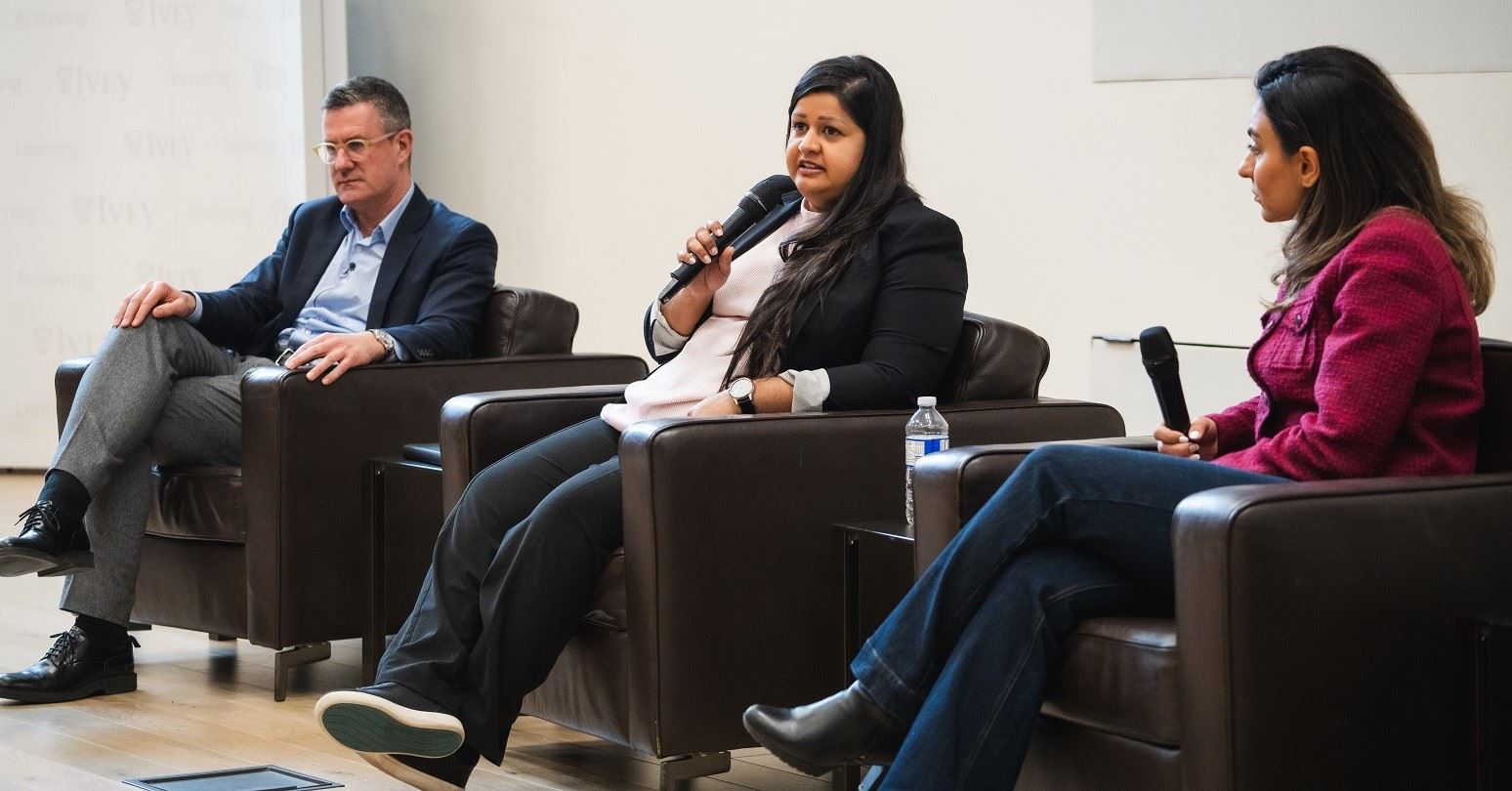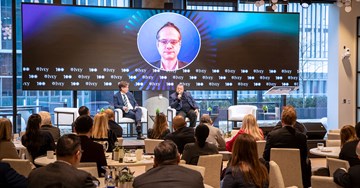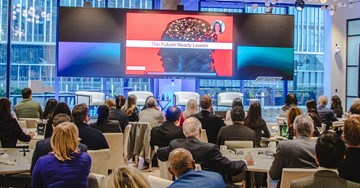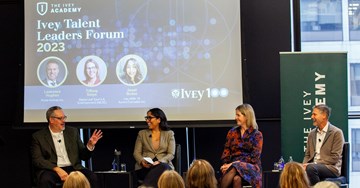Artificial intelligence is not new or cutting edge, but after decades of quietly permeating our lives, it appears to be having its moment. Spurred by the recent rollout of generative artificial intelligence (AI), such as ChatGPT, which has made it easier to incorporate AI into everyday tasks with little training or know-how, organizations are now seeing capabilities to transform their industries.
But, like any powerful technology, AI is not without risks and future business leaders need to recognize where it can add value and apply it meaningfully.
Three digital innovation leaders discussed how AI is redefining business and the future of work and shared advice with Ivey students on how to balance technological innovation with humanity and ethics. It was all part of a capstone event on March 5 for HBA students in the Leveraging Information Technology course, which culminated with a project where they were challenged to propose a digital innovation that leverages AI to shape the future of education.
The event, organized by Ivey's Leveraging Information Technology faculty, included a panel discussion on how to lead in an AI-powered world as well as individual presentations from each panellist on different AI-related topics. Christoph Knoess, CAO and Chief Strategy Officer of RBC, told how AI is transforming financial services in ways ranging from virtual wealth managers to automated treasury processes. Dana Ohab, EMBA ’18, Partner, Consulting, AI & Data with EY Canada, shared some unique business applications of AI, including human trafficking detection and customizable sustainable clothing design. And Parinaz Sobhani, Head of AI at Georgian, a growth-stage investor of AI companies, discussed the risks of AI and the investment perspective.
Here are some takeaways.
Be curious and learn
Noting that AI will be part of the future, no matter what your industry or role, Christoph Knoess encouraged the students to learn as much as they can about AI and get hands-on experience to help them to understand how it works.
“Everyone should be curious about it, not just at the top layer, but really get into it because it’s a different way of thinking about data and getting insights from it. Understanding it almost at a model level really helps you to assess the potential of it … It's a mind-bender to understand what goes into these models,” he said. “You have to really understand the potential because over time the workforce will look entirely different. It will require different ways of working with the humans that are paired up with machines and that will require leadership skills that are not traditional.”
Make room to innovate and experiment
Even after studying AI for more than 20 years, Parinaz Sobhani said it’s difficult to stay on top of the latest developments and to understand how they apply to different industries and markets. Given that, she said future leaders will need to be agile, flexible, and willing to experiment with new technology.
“As a manager, you are supposed to help your team to innovate and experiment and it’s even more important because of the pace of change. Enablement means providing the right training, providing the right tools, and giving people space to have the opportunity to experiment and innovate,” she said. “You have to go after the pain points. You have to start with a problem. And you have to have a product market fit.”
Beware of the risks, but don’t be afraid to be bold
Citing a famous line from the original Jurassic Park movie about the potential for irresponsible innovation, “Your scientists were so preoccupied with whether they could, they didn’t stop to think if they should,” Dana Ohab stressed the importance of meaningful application of AI.
“You’ll want to focus on the business value, but you’ll also want to make sure that you’re managing the risk … I think the questions still need to be asked. There’s still a lot we can do and a lot we should do, but it’s about making sure that we’re doing it at the right time,” she said.
On the other hand, if you’ve considered the risks and decided the time is right, Ohab said don’t be afraid to push forward with bold ideas to innovate with AI.
“As you're thinking about your careers, as you're thinking about your projects, don't shy away from the big and messy problems – the complicated problems – the bold ideas. You're going to have people along the way tell you that it's not the right thing to think about or not the right question or not the right time, but don't give up,” she said. “I think those are the ideas and the ambitions that truly make a difference and move the needle. And even though there are a lot of things we haven't solved for, those are things that I think are going to be remembered.”



